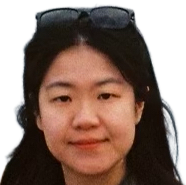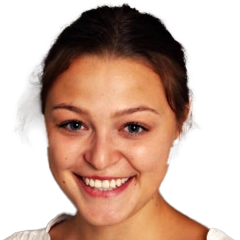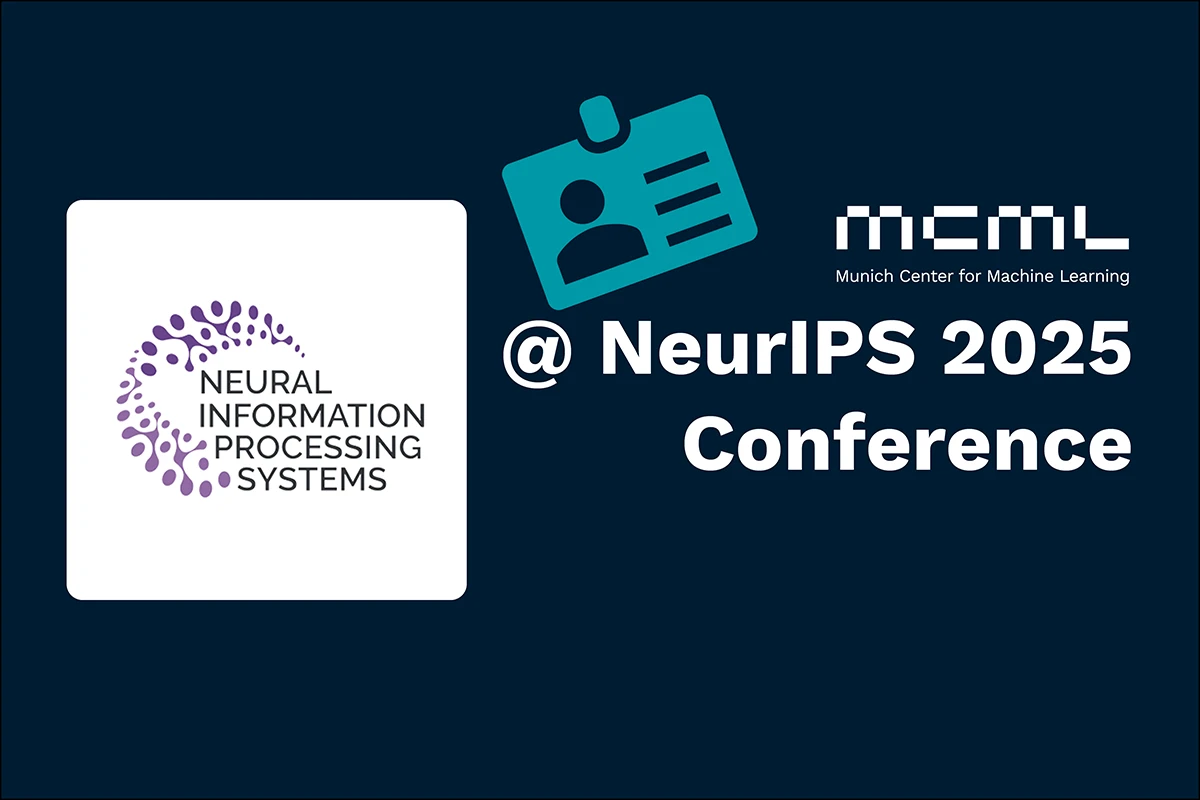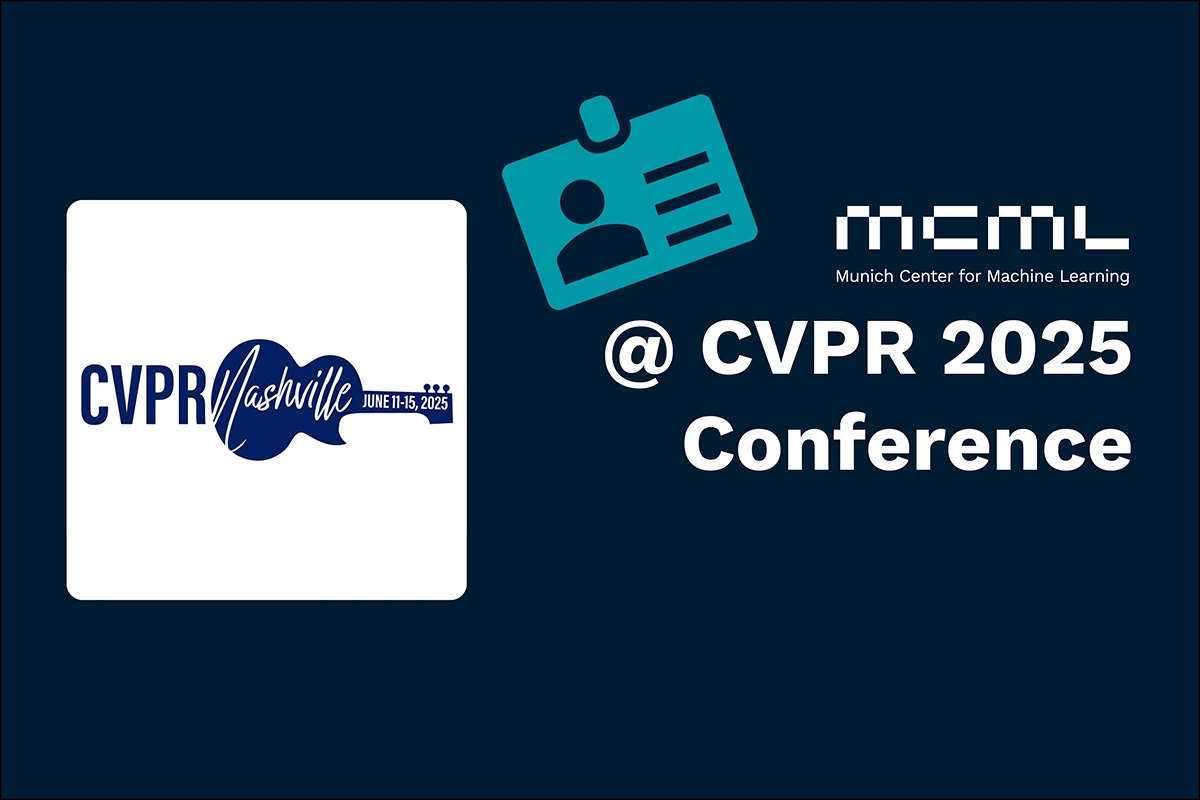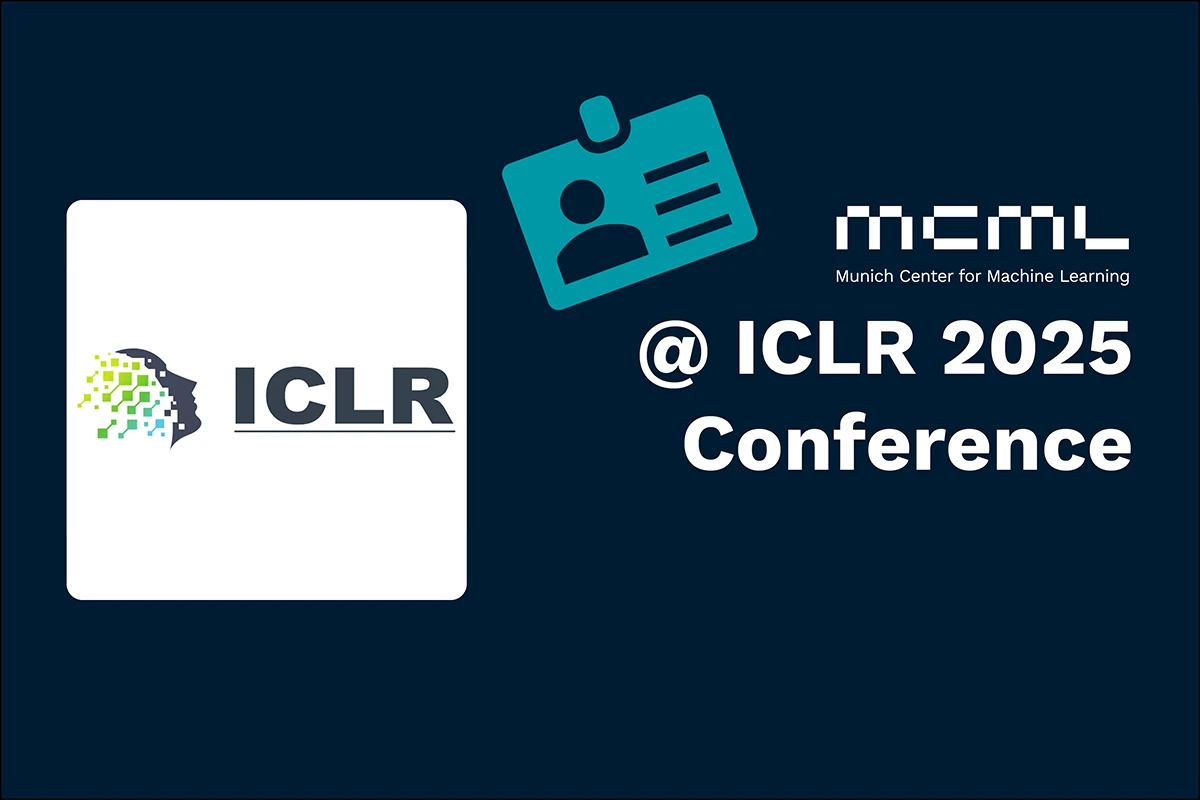Research Group Stefanie Jegelka
Stefanie Jegelka
is a Humboldt Professor at TU Munich.
Her research is in algorithmic machine learning, and spans modeling, optimization algorithms, theory and applications. In particular, she has been working on exploiting mathematical structure for discrete and combinatorial machine learning problems, for robustness and for scaling machine learning algorithms.
Team members @MCML
PostDocs
PhD Students
Recent News @MCML
Publications @MCML
2025
[24]
T. Putterman • D. Lim • Y. Gelberg • M. M. Bronstein • S. Jegelka • H. Maron
GL Equivariant Metanetworks for Learning on Low Rank Weight Spaces.
LOG 2025 - 4th Learning on Graphs Conference. Phoenix, AZ, USA, Dec 10-12, 2025. URL
GL Equivariant Metanetworks for Learning on Low Rank Weight Spaces.
LOG 2025 - 4th Learning on Graphs Conference. Phoenix, AZ, USA, Dec 10-12, 2025. URL
[23]

M. Yau • E. Akyürek • J. Mao • J. B. Tenenbaum • S. Jegelka • J. Andreas
Learning Linear Attention in Polynomial Time.
NeurIPS 2025 - 39th Conference on Neural Information Processing Systems. San Diego, CA, USA, Nov 30-Dec 07, 2025. Oral Presentation. To be published. Preprint available. URL
Learning Linear Attention in Polynomial Time.
NeurIPS 2025 - 39th Conference on Neural Information Processing Systems. San Diego, CA, USA, Nov 30-Dec 07, 2025. Oral Presentation. To be published. Preprint available. URL
[22]
C. L. Choi • V. Subramaniam • A. Torralba • P. Isola • S. Jegelka
Fairness Aware Reward Optimization.
Preprint (Nov. 2025). PDF
Fairness Aware Reward Optimization.
Preprint (Nov. 2025). PDF
[21]
D. Herbst • L. Karbevska • D. Kumar • A. Ahuja • F. G. Nasrabadi • F. Frasca
Lost in Serialization: Invariance and Generalization of LLM Graph Reasoners.
Preprint (Nov. 2025). arXiv
Lost in Serialization: Invariance and Generalization of LLM Graph Reasoners.
Preprint (Nov. 2025). arXiv
[20]
X. Guo • R. Zhou • Y. Wang • Q. Zhang • C. Zhang • S. Jegelka • X. Wang • J. Chai • G. Yin • W. Lin • Y. Wang
SSL4RL: Revisiting Self-supervised Learning as Intrinsic Reward for Visual-Language Reasoning.
Preprint (Oct. 2025). arXiv
SSL4RL: Revisiting Self-supervised Learning as Intrinsic Reward for Visual-Language Reasoning.
Preprint (Oct. 2025). arXiv
[19]
F. Kiwitt • B. Tahmasebi • S. Jegelka
Symmetries in Weight Space Learning: To Retain or Remove?
HiLD @ICML 2025 - Workshop on High-dimensional Learning Dynamics at the 42nd International Conference on Machine Learning. Vancouver, Canada, Jul 13-19, 2025. URL
Symmetries in Weight Space Learning: To Retain or Remove?
HiLD @ICML 2025 - Workshop on High-dimensional Learning Dynamics at the 42nd International Conference on Machine Learning. Vancouver, Canada, Jul 13-19, 2025. URL
[18]

A. Soleymani • B. Tahmasebi • S. Jegelka • P. Jaillet
Learning with Exact Invariances in Polynomial Time.
ICML 2025 - 42nd International Conference on Machine Learning. Vancouver, Canada, Jul 13-19, 2025. URL
Learning with Exact Invariances in Polynomial Time.
ICML 2025 - 42nd International Conference on Machine Learning. Vancouver, Canada, Jul 13-19, 2025. URL
[17]

T. Dagès • S. Weber • Y.-W. E. Lin • R. Talmon • D. Cremers • M. Lindenbaum • A. M. Bruckstein • R. Kimmel
Finsler Multi-Dimensional Scaling: Manifold Learning for Asymmetric Dimensionality Reduction and Embedding.
CVPR 2025 - IEEE/CVF Conference on Computer Vision and Pattern Recognition. Nashville, TN, USA, Jun 11-15, 2025. DOI
Finsler Multi-Dimensional Scaling: Manifold Learning for Asymmetric Dimensionality Reduction and Embedding.
CVPR 2025 - IEEE/CVF Conference on Computer Vision and Pattern Recognition. Nashville, TN, USA, Jun 11-15, 2025. DOI
[16]
A. Bergmeister • M. K. Lal • S. Jegelka • S. Sra
A projection-based framework for gradient-free and parallel learning.
Preprint (Jun. 2025). arXiv
A projection-based framework for gradient-free and parallel learning.
Preprint (Jun. 2025). arXiv
[15]
E. S. Escriche • S. Jegelka
Learning equivariant models by discovering symmetries with learnable augmentations.
Preprint (Jun. 2025). arXiv
Learning equivariant models by discovering symmetries with learnable augmentations.
Preprint (Jun. 2025). arXiv
[14]
X. Guo • A. Li • Y. Wang • S. Jegelka • Y. Wang
G1: Teaching LLMs to Reason on Graphs with Reinforcement Learning.
Preprint (May. 2025). arXiv GitHub
G1: Teaching LLMs to Reason on Graphs with Reinforcement Learning.
Preprint (May. 2025). arXiv GitHub
[13]

L. Fang • Y. Wang • Z. Liu • C. Zhang • S. Jegelka • J. Gao • B. Ding • Y. Wang
What is Wrong with Perplexity for Long-context Language Modeling?
ICLR 2025 - 13th International Conference on Learning Representations. Singapore, Apr 24-28, 2025. URL GitHub
What is Wrong with Perplexity for Long-context Language Modeling?
ICLR 2025 - 13th International Conference on Learning Representations. Singapore, Apr 24-28, 2025. URL GitHub
[12]

L. Rauchwerger • S. Jegelka • R. Levie
Generalization, Expressivity, and Universality of Graph Neural Networks on Attributed Graphs.
ICLR 2025 - 13th International Conference on Learning Representations. Singapore, Apr 24-28, 2025. URL
Generalization, Expressivity, and Universality of Graph Neural Networks on Attributed Graphs.
ICLR 2025 - 13th International Conference on Learning Representations. Singapore, Apr 24-28, 2025. URL
[11]

B. Tahmasebi • S. Jegelka
Generalization Bounds for Canonicalization: A Comparative Study with Group Averaging.
ICLR 2025 - 13th International Conference on Learning Representations. Singapore, Apr 24-28, 2025. URL
Generalization Bounds for Canonicalization: A Comparative Study with Group Averaging.
ICLR 2025 - 13th International Conference on Learning Representations. Singapore, Apr 24-28, 2025. URL
[10]

Q. Zhang • Y. Wang • J. Cui • X. Pan • Q. Lei • S. Jegelka • Y. Wang
Beyond Interpretability: The Gains of Feature Monosemanticity on Model Robustness.
ICLR 2025 - 13th International Conference on Learning Representations. Singapore, Apr 24-28, 2025. URL
Beyond Interpretability: The Gains of Feature Monosemanticity on Model Robustness.
ICLR 2025 - 13th International Conference on Learning Representations. Singapore, Apr 24-28, 2025. URL
[9]

D. Herbst • S. Jegelka
Higher-Order Graphon Neural Networks: Approximation and Cut Distance.
ICLR 2025 - 13th International Conference on Learning Representations. Singapore, Apr 24-28, 2025. Spotlight Presentation. URL
Higher-Order Graphon Neural Networks: Approximation and Cut Distance.
ICLR 2025 - 13th International Conference on Learning Representations. Singapore, Apr 24-28, 2025. Spotlight Presentation. URL
2024
[8]

G. Ma • Y. Wang • D. Lim • S. Jegelka • Y. Wang
A Canonicalization Perspective on Invariant and Equivariant Learning.
NeurIPS 2024 - 38th Conference on Neural Information Processing Systems. Vancouver, Canada, Dec 10-15, 2024. URL GitHub
A Canonicalization Perspective on Invariant and Equivariant Learning.
NeurIPS 2024 - 38th Conference on Neural Information Processing Systems. Vancouver, Canada, Dec 10-15, 2024. URL GitHub
[7]

Y. Wang • K. Hu • S. Gupta • Z. Ye • Y. Wang • S. Jegelka
Understanding the Role of Equivariance in Self-supervised Learning.
NeurIPS 2024 - 38th Conference on Neural Information Processing Systems. Vancouver, Canada, Dec 10-15, 2024. URL GitHub
Understanding the Role of Equivariance in Self-supervised Learning.
NeurIPS 2024 - 38th Conference on Neural Information Processing Systems. Vancouver, Canada, Dec 10-15, 2024. URL GitHub
[6]

Y. Wang • Y. Wu • Z. Wei • S. Jegelka • Y. Wang
A Theoretical Understanding of Self-Correction through In-context Alignment.
NeurIPS 2024 - 38th Conference on Neural Information Processing Systems. Vancouver, Canada, Dec 10-15, 2024. URL GitHub
A Theoretical Understanding of Self-Correction through In-context Alignment.
NeurIPS 2024 - 38th Conference on Neural Information Processing Systems. Vancouver, Canada, Dec 10-15, 2024. URL GitHub
[5]

M. Yau • N. Karalias • E. Lu • J. Xu • S. Jegelka
Are Graph Neural Networks Optimal Approximation Algorithms?
NeurIPS 2024 - 38th Conference on Neural Information Processing Systems. Vancouver, Canada, Dec 10-15, 2024. URL
Are Graph Neural Networks Optimal Approximation Algorithms?
NeurIPS 2024 - 38th Conference on Neural Information Processing Systems. Vancouver, Canada, Dec 10-15, 2024. URL
[4]

A. H. Berger • L. Lux • N. Stucki • V. Bürgin • S. Shit • A. Banaszaka • D. Rückert • U. Bauer • J. C. Paetzold
Topologically faithful multi-class segmentation in medical images.
MICCAI 2024 - 27th International Conference on Medical Image Computing and Computer Assisted Intervention. Marrakesh, Morocco, Oct 06-10, 2024. DOI
Topologically faithful multi-class segmentation in medical images.
MICCAI 2024 - 27th International Conference on Medical Image Computing and Computer Assisted Intervention. Marrakesh, Morocco, Oct 06-10, 2024. DOI
[3]
K. Gatmiry • Z. Li • S. J. Reddi • S. Jegelka
Simplicity Bias via Global Convergence of Sharpness Minimization.
Preprint (Oct. 2024). arXiv
Simplicity Bias via Global Convergence of Sharpness Minimization.
Preprint (Oct. 2024). arXiv
[2]
K. Gatmiry • N. Saunshi • S. J. Reddi • S. Jegelka • S. Kumar
On the Role of Depth and Looping for In-Context Learning with Task Diversity.
Preprint (Oct. 2024). arXiv
On the Role of Depth and Looping for In-Context Learning with Task Diversity.
Preprint (Oct. 2024). arXiv
[1]
T. Putterman • D. Lim • Y. Gelberg • S. Jegelka • H. Maron
Learning on LoRAs: GL-Equivariant Processing of Low-Rank Weight Spaces for Large Finetuned Models.
Preprint (Oct. 2024). arXiv
Learning on LoRAs: GL-Equivariant Processing of Low-Rank Weight Spaces for Large Finetuned Models.
Preprint (Oct. 2024). arXiv
©all images: LMU | TUM


